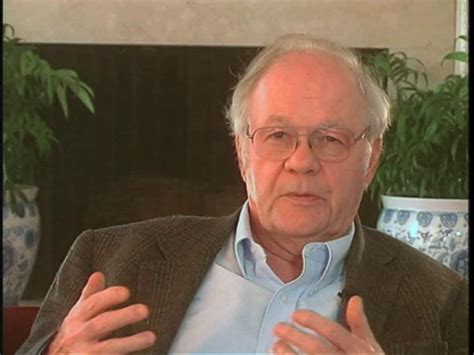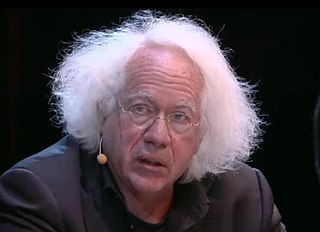A Quote by Dennis Prager
There is nothing - not any religious or secular body of work - that comes close to the Bible in forming the moral bases of Western civilization and therefore of nearly all moral progress in the world.
Related Quotes
There can be, therefore, no true education without moral culture, and no true moral culture without Christianity. The very power of the teacher in the school-room is either moral or it is a degrading force. But he can show the child no other moral basis for it than the Bible. Hence my argument is as perfect as clear. The teacher must be Christian. But the American Commonwealth has promised to have no religious character. Then it cannot be teacher.
The objections to religion are of two sorts - intellectual and moral. The intellectual objection is that there is no reason to suppose any religion true; the moral objection is that religious precepts date from a time when men were more cruel than they are and therefore tend to perpetuate inhumanities which the moral conscience of the age would otherwise outgrow.
God doesn't help. I think that's a knockdown argument. I think that it really shows that whatever moral knowledge we have and whatever moral progress we make in our knowledge or whatever progress we make in our moral knowledge is not coming really from religion. It's coming from the very hard work really of moral philosophy, of trying to ground our moral reasonings.
The time has also come to recognize the painful truth that traditional Judeo-Christian moral values of pain and pleasure in human relationships have contributed substantially to child abuse and to the prevalence of physical violence in Western civilization.... The religious system upon which our culture is based holds that pain, suffering and deprivation are moral and necessary to save one's soul and make one a 'good person.' The crucifixion and scourging of Christ are examples.
I am among those who believe that our Western civilization is on its way to perishing. It has many commendable qualities, most of which it has borrowed from the Christian ethic, but it lacks the element of moral wisdom that would give it permanence. Future historians will record that we of the twentieth century had intelligence enough to create a great civilization but not the moral wisdom to preserve it.
...any belief in supernatural creators, rulers, or influencers of natural or human process introduces an irreparable split into the universe, and prevents us from grasping its real unity. Any belief in Absolutes, whether the absolute validity of moral commandments, of authority of revelation, of inner certitudes, or of divine inspiration, erects a formidable barrier against progress and the responsibility of improvement, moral, rational, and religious.
We are now returning to the 18th century empirical approach with the new interest in the evolutionary basis of ethics, with 'experimental' moral philosophy and moral psychology. As a result, we understand better why moral formulas are experienced as ineluctable commands, even if there is no commander and even if the notion of an inescapable obligation is just superstition. So moral philosophy has made huge progress.
Lastly, our ancestors established their system of government on morality and religious sentiment. Moral habits, they believed, cannot safely be trusted on any other foundation than religious principle, nor any government be secure which is not supported by moral habits.... Whatever makes men good Christians, makes them good citizens.
You find as you look around the world that every single bit of progress in humane feeling, every improvement in the criminal law, every step toward the diminution of war, every step toward better treatment of the colored races, or every mitigation of slavery, every moral progress that there has been in the world, has been consistently opposed by the organized churches of the world. I say quite deliberately that the christian religion, as organized in its churches, has been and still is the principle enemy of moral progress in the world.
No civilisation, not even that of ancient Greece, has ever undergone such a continuous and profound process of change as Western Europe has done during the last 900 years. It is impossible to explain this fact in purely economic terms by a materialistic interpretation of history. The principle of change has been a spiritual one and the progress of Western civilisation is intimately related to the dynamic ethos of Western Christianity, which has gradually made Western man conscious of his moral responsibility and his duty to change the world.































